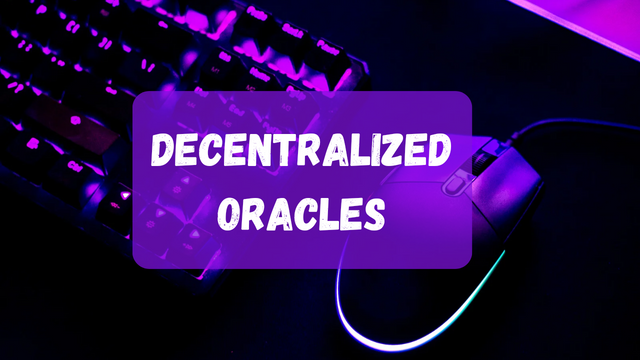Blockchain ecosystems are supported by decentralized oracles. They fill the gap of on-chain smart contracts and off-chain real-world data by avoiding centralization. Their centralized contrasting versions ensure transparency and security. They provide a strong basis for accessing and verifying external information.

Explanation of Decentralized Oracles
By following the principle of distributed consensus decentralized oracles collect data from various nodes to check and feed into smart contracts. Unlike centralized oracles that rely on one entity, decentralized oracles depend on a network of validators ensuring that they cannot be easily manipulated or simply broken down.
The Working Mechanism of Decentralized Oracles
Data Sourcing: Data is brought together through decentralized node networks with the help of APIs, IoT devices as well as manual input. It can include financial market data, weather conditions or sports scores among others.
Data Validation: Once collected, the data is validated by the decentralized oracle network through several independent nodes. Validators use consensus mechanisms as well as cryptographic methods and reputation systems to ensure that the information is accurate and reliable.
On Chain Transmission: The next step involves sending validated data over to the blockchain where it becomes accessible via smart contracts. This transmission process usually includes encoding data in a format suitable with blockchain protocols like JSON or XML.
Smart Contract Execution: Smart contracts then use this incoming data to autonomously implement predefined actions or conditions. For example, upon receipt of valid data from the decentralized oracle system, a smart contract may cause a payment to be made, modify interest rates or trigger an event in supply chain.
Diverse Applications of Decentralized Oracles

Decentralized Finance: Real time price feeds for cryptocurrencies, assets, and indices are provided by decentralized oracles. These price feeds are responsible for facilitating automated trading while providing liquidity into pools in the decentralized finance ecosystems.
Supply Chain Management: Decentralized oracles play a major role in increasing the level of transparency and accountability in supply chains. They verify the authenticity of products, track shipment status as well as monitoring stock levels. This information helps with efficient management of logistics.
Insurance: Decentralized oracles enable insurance smart contracts to assess risks, determine premiums and process claims efficiently. They deliver real time data related to weather patterns, natural disasters, and asset valuations.
Pros and Cons
Pros:
Decentralization: Decentralized oracles eliminate single points of failure. They eliminate reliability on centralized authorities. They increase the security of the applications.
Reliability: Data tampering, censorship resistance and downtime are some of the areas where decentralized oracle platforms have a higher degree of reliability. They rely on distributed consensus among independent validators.
Cons:
Cost and Scalability: Operating decentralized oracle networks may result in higher costs. They can also cause scalability issues due to the need for consensus mechanisms and data validation by multiple nodes.
Data Quality: The reliability and quality of external data is an ongoing challenge for decentralized oracles because validators can be victims of false information or malicious activities.
Conclusion
The backbone of blockchain development is decentralized oracles. Decentralized oracles allow real data to be used in smart contracts. They help maintain decentralization, security and trust. In due course, decentralized applications will be revolutionized by decentralized oracles as blockchain technology progresses across a multitude of sectors. Through them, it would be achievable to construct the most open and productive digital economy that is equally available for all participants.
X Permotion
https://twitter.com/shabbir_saghar/status/1777491424612610179?t=zfap0cSkYtzqJ3CSX966zw&s=19
Downvoting a post can decrease pending rewards and make it less visible. Common reasons:
Submit
Note:- ✅
Regards,
@theentertainer
Downvoting a post can decrease pending rewards and make it less visible. Common reasons:
Submit